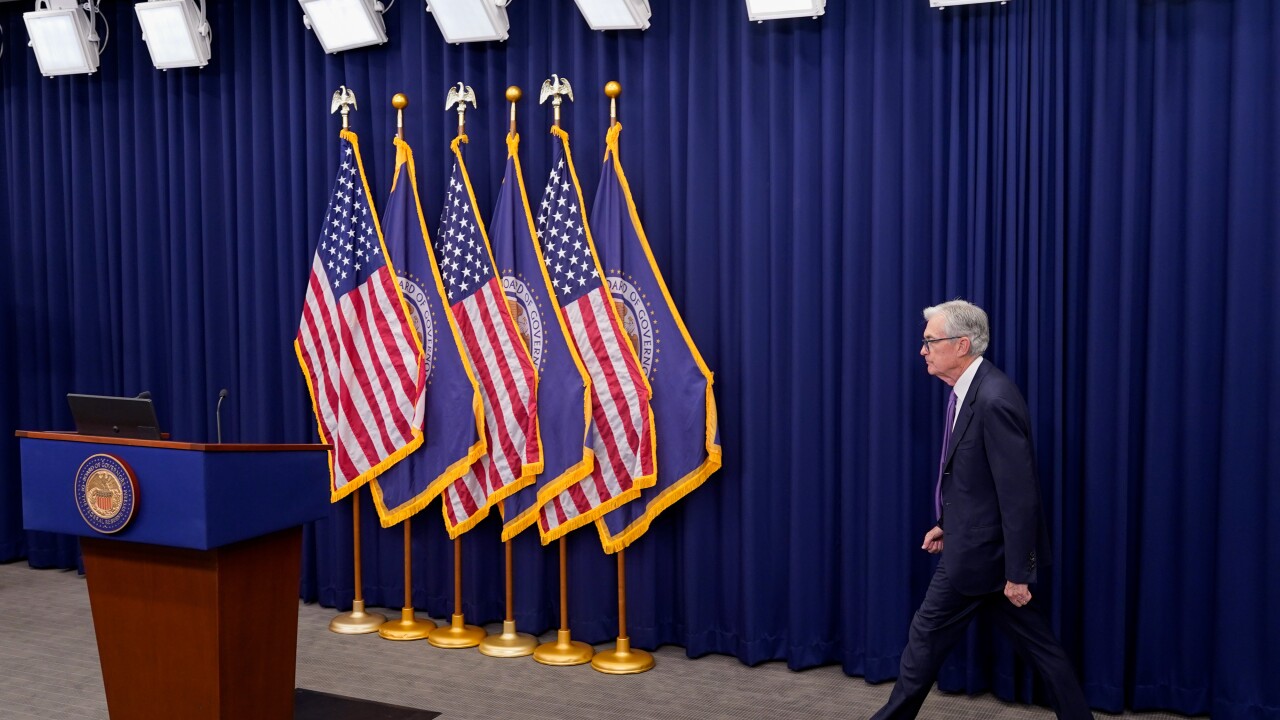Securitization could be one of the busiest sectors of Australia's capital markets in the financial year to next June 30, according to a survey by the Sydney branch of U.S.-based research house Greenwich Associates.
Of 182 respondents from the corporate, financial and government sectors, 44 said they expected to sell assets into securitization vehicles during 1999-2000. This was more than half as much again as the 29 survey respondents who actually sold assets during the previous 12 months.
The survey gave some insight into the dynamics driving the market, with 59% of respondents citing balance sheet and/or regulatory capital management as the key reason for transacting deals. Funding diversification was mentioned by 56% of respondents, with only 26% using securitization as an opportunity to tap new funds, and 18% accessing the market because it provided the cheapest source of funds.
The survey - or rather, the version of it released publicly - was a summary of the findings of more detailed research prepared for individual banks. As such, it provided little qualitative information about, for example, the nature of assets to be securitized.
Macquarie Moves Into China
The diversification of assets beyond mortgages has been a key theme of the market during the last year, and is likely to continue to be so for the foreseeable future.
During the last two weeks, however, other developments have emerged that could help stimulate the market's growth, either directly or indirectly: one was the disclosure by the Australian Stock Exchange (ASX) that it plans in October to open the non-government bond market to retail investors; another was an announcement by Macquarie Bank subsidiary, Macquarie Securitization, that it was negotiating with the People's Republic of China to introduce securitzation there (ASRI 7/26/99 p7).
Macquarie's venture into China is perhaps the more imaginatively appealing of the two. The investment bank - which recently acquired the local investment banking business of Bankers Trust, making it by far the biggest home-grown operation of its kind in Australia - has had a presence in China since the mid-1990s, mainly as an arranger of foreign equity for housing projects.
The bank's securitization business has been looking for new growth opportunities, following the curtailment of its strategic alliance with Australia's biggest mortgage originator, Aussie Home Loans, and the intervention of the Asian financial crisis in its attempts to start a mortgage securitization market in Indonesia.
The housing sector in China, a country of 1.2 billion, offers enormous potential, with just 5% of urban homes privately owned. The bank has hired former Australian prime minister, Paul Keating, to lobby on its behalf (Keating has built a career as a door-opener for Australian business in Asia since losing power in 1996) and has been successful in securing at least one interview with Chinese premier, Zhu Rongji.
Macquarie's aim is to lend a hand in the formulation of policy that will shape the guidelines for the securitization industry, now been drawn up by Beijing officials.
The process is likely to be a long one, however, given China's lack of the necessary legal and institutional infrastructure: although the growth of the domestic bond market has been encouraging, the country - according to Macquarie Bank executives - has no concept of special purpose vehicles, to mention one problem among many. The bank's medium term objective is to launch a pilot project in Shanghai which, it believes, could take anything between one and five years to accomplish.
After that, it sees the local mortgage-backed market growing slowly, as it did initially in Australia. Success by Macquarie in this area could see many more Australian securitization businesses exporting to China and elsewhere in Asia (SG Australia is already an established exporter to Hong Kong, South Korea and Japan).
ASX Looks Towards Retail Investors
The ASX's plan is aimed principally at the A$24 billion (US$15.7 billion) vanilla corporate bond market, but would also include the mortgage- and asset-backed sector, which is of a similar size. The ASX will launch screen trading of corporate bonds in October, making the market price-transparent and putting it within reach of retail investors for the first time.
Market participants have warmly welcomed the move, although many are sceptical about retail investors' receptiveness to securities which, while safer than equities, tend to be more difficult to understand.
Competition For Mandates Becoming Stiffer
For the time being at least, life in the securitization market will carry on much as before, with competition for lead arranger mandates becoming more intense. The Greenwich survey shed some interesting light here, too.
Asked to identify the key decision criteria in selecting a bank to manage a transaction, 57% of respondents said structuring ability, 43% historical relationship with the arranger and 36% said price.
The banks described as having the greatest market penetration in arranging domestic short-dated issues for special purpose vehicle financings were Bankers Trust (now owned by Macquarie) with 83%; Commonwealth Bank of Australia and National Australia Bank (75% each) and SG Australia and Westpac Banking Corp (67% each).
The investment bank with the highest market penetration in arranging medium-term SPV financing was Warburg Dillon Read with a rating of 88%, followed by Deutsche Bank (75%) and Credit Suisse First Boston (63%). Westpac and ABN AMRO lay joint fourth with 50% each. Overall, Westpac was singled out as the preferred arranger for securitization, mentioned by 29% of respondents, followed by Bankers Trust (21%) and Warburg Dillon Read (19%). The survey also broke down banks' success rates in winning mandates to sell assets to SPVs (see table).





